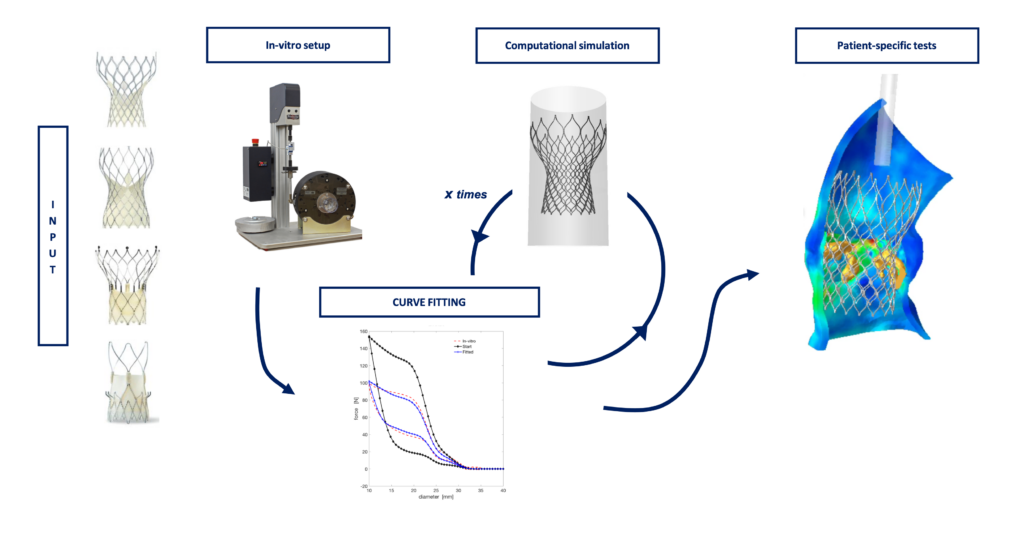Computational simulations of Transcatheter Aortic Valve Implantation (TAVI) have reached a high level of complexity and accuracy for the prediction of possible implantation scenarios during the decision-making process. However, when focusing on the prosthetic device, currently different devices are available on the market which not only have different geometries, but also different material properties.
The recent work “Finite element analysis of transcatheter aortic valve implantation: Insights on the modelling of self-expandable devices”, published in the Journal of the Mechanical Behavior of Biomedical Materials, focuses on the calibration of Nitinol constitutive parameters of four self-expandable devices starting from experimental radial force tests on the prosthetic samples.
The work comes from a collaboration between the CompMech Group (Dr. Alice Finotello, Prof. Simone Morganti, Prof. Ferdinando Auricchio), and the Cardiology Unit of the IRCCS Policlinico San Donato (Dr. Riccardo Gorla, Dr. Nedy Brambilla, Prof. Francesco Bedogni).

September 15, 2021

